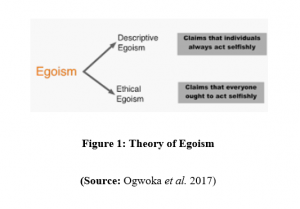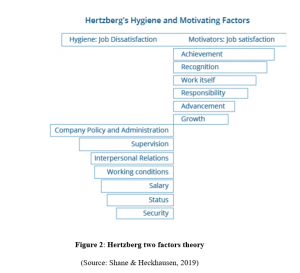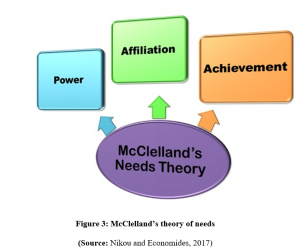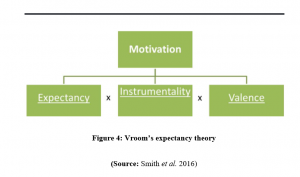BHM 347 Assessment Performance And Reward Assignment Sample
Here’s the best sample of BHM 347 Assessment Performance And Reward Assignment, written by the expert.
Introduction
The main aim of the study is to present an analysis of the recruitment procedure in retail organization. In presenting that it has highlighted the specific area that will enable them to figure out the policies during the recruitment. It will evaluate the theory regarding the HR policies of the organization. In addition it will provide an idea about the performance management of retail employees in the retail industry and the reward structure that enables them in improving the performance in the enterprise. It will highlight the theory that will play an important role in improving the performance of the employees.
Part A: Key factors that influence whether their recruitment and selection processes are effective and ethical
Every business organization has an effective and ethical recruitment and selection process that helps to enhance the overall organizational performance. The following key factors are very much essential that must be considered in the evaluation of whether the selection and recruitment process is effective and also efficient or not:
Ensure Transparency in Hiring Process
In the corporate business organization, there is a need to maintain proper transparency in the interview or recruitment process and the involvement of all the senior managers and the HR team. In the opinion of Hernández Aracena and Espinosa Cristia, (2017), moreover, being transparent also indicates that the candidates have clear knowledge about the selection criteria and can be informed of the status of their application. For example, the retail organization Tesco advertises job vacancies in the online website for different positions or advertises through magazines or newspapers.
Human resource team analyses the resume of the applicants and selects the applicants based on the job role. After that, the screening test helps to understand the technical ability of the participants like team-working activities, problem-solving attitude. After passing this stage, candidates are called for an interview and the deserving candidate gets the job. Hence, this process is very much transparent for all the applicants who ensure the ethical practice of selection and recruitment (tesco.com, 2020).
Ensure to avoid discrimination
An ethical recruitment policy ensures that the overall selection is being conducted fairly and legitimately. As per the views of Barratt (2019), this must be considered as it ensures that discriminatory behaviour needs to be avoided in the recruitment process. A candidate must never be discriminated against based on their gender, age, race, religion and nationality. A fair and ethical policy ensures the candidates take legal action if they feel discriminated against in the selection process. The Ethical standard in Public Life act 2000 has been maintained by the retail organization at the time of recruitment and selection process. In the famous retail organization Sainsbury, there are two types of recruitment process one is internal recruitment and other external recruitment.
Internal recruitment has been done based on different tools like performance appraisal, recommendation by managers and inventory. The external source of recruitment includes advertising, government training schemes; recruitment consultancies and the selection process include psychometric test, preliminary interview, medical examination and final selection. As opined by Brown et al, (2019), this retail organization maintains the ethical practice for selection and avoids discrimination at the time of hiring participants (sainsburys.co.uk, 2020).
Ensure Consistency
The recruitment and selection process in an organisation needs to be consistent that means every business organization needs to ensure to set definite selection criteria for individual participants. In the views of Ployhart et al, (2017), the employer must check the desired skills of the individual employees and also uses comprehensive pre-employment screening service for the accurate selection of the employees. For example, the business retail organization of the United Kingdom Ads uses the standard method of recruitment which is more efficient and ethical.
Firstly, the applicant needs to successfully navigate the online application form. This consists of an aptitude test, personality test and verbal and non-verbal reasoning assessments. After passing the online test, the applicants are invited to the development centre of Asda called “ASDA Magic”, for different presentation and group activities. The final stage is one to one interview where the applicants need to convey their compatibility on the three main beliefs such as individual respect, striving for excellence and customer service (asda.com, 2020)
Ensure the credibility of the Organization
An organization should set the protocols for the selection and recruitment process for showing that the organization is credible to apply. In modern times, there are many fake interviews or job vacancies posted which trap the candidates. As argued by Black et al, (2018), hence, to ensure reliability, the business organization practices the ethical recruitment policy. For example, the famous retail organization in UK Marks and Spencers use the complex recruitment system to deal with a higher volume of applicants. The organization has recruited the employees through WCN’s Applicant Tracking System and after completing the online test, the applicants can book their interview with the HR system of the organisation.
Theories and model
Utilitarianism Theory of Ethics
This theory is a normative practice that mainly focuses on the right and wrong outcomes based on the chosen action and policies in the organization. As per the views of Durrani and Rajagopal, (2016), the retail business organization of the United Kingdom needs to attain the positive and productive recruitment policies which can help to gain higher performance outcomes and productivity. For example, the retail business organization Sainsbury is required to maintain the ethical practice by transparent selection procedures which enhance their annual growth and potentiality. This theory is mainly based on the three core principles where the intrinsic value of the individual is analysed based on pleasure and happiness. That means the efficiency in the recruitment and selection policy provides proper satisfaction to the employers and both the applicants.
The second principle mainly illustrates that the right action promotes happiness and the wrong action promotes unhappiness. In the views of Singh et al. (2019), the unethical practice of selection and recruitment process disable to hire competent and proficient employees which may disrupt the organizational growth. The third principle mainly focuses on workplace discrimination at the time of selection which relates to the concept everyone is treated equally. At the time of recruitment, each applicant needs to be treated equally which enhances the overall system.
Egoism Theory of Ethics
The egoism theory of ethics mainly describes the moral agent of the individual in their self-respect. The theory helps to motivate the person to achieve their goal in terms of their action. In the selection process, the higher management and the HR team of the business organization focus on organization goals and needs and recruit the candidate as per the proper selection criteria. In the opinion of Ogwoka et al, (2017), on the other hand, the participants also need to fulfil the requirement of the business organization to achieve their career goal. The transparent and ethical practice encourages the employees for their in-depth contribution to the recruitment process and follows the selection criteria and maintains the proper job ethics.

Part B
Theoretical approaches
The economic downturn decreases the income of the people. This situation shows a downward falling of the demand curve. As the demand of the people decreases it increases the rate of unemployment in the economy. In this aspect, the main challenge of the retail companies is to maintain the retention rate of the customer. In order to maintain the retention rate the firm will have to focus on performance management. This can be done by motivating the employees.
Hertzberg’s two factor theory
In order to improve the performance of the employees the management of the firm will have to motivate the employees of the corporation. Hygiene features are relied upon to guarantee that a laborer is not disillusioned. Motivation features are required for ensuring laborer’s satisfaction and agent’s motivation for better. According to Shane & Heckhausen (2019), the presence of hygiene features does not guarantee motivation, and proximity of motivation features without neatness features moreover does not work in the retail industry. Thus the factor that can have an impact on the performance of the firm is the satisfaction of the employees.

If the employees are satisfied with the hygiene features then it will have a direct impact on the satisfaction of the employees. The Main issue is the demand is decreasing and the employees will have to attract customers through their performance during this downturn of the economy. For instance, Tesco provides a special attention in the satisfaction of employees that includes the hygiene features of the employees.
McClelland’s theory of needs
McClelland confirms that in general there are three stirring drivers, and it does not depend upon sex or age. The prevalent drive depends upon our experience.
The three drivers are:
- Achievement: the demand of the people decreases it increases the rate of unemployment in the economy. In this aspect, the main challenge of the retail companies is to maintain the retention rate of the customer (Rogers, 2017)

- Affiliation: In order to maintain the retention rate the firm will have to focus on performance management. This can be done by motivating the employees.
- Power: The proper achievement of the employees will enable them to get proper service. In order to improve the performance of the employee the retail companies will have to create a performance culture that will enable them to improve the performance of the firm (Nikou and Economides 2017).
Thus the management of the firm will have to show trust in their employees by providing them with proper work. This situation will enable them to figure out their role in the firm which is a very important factor in improving performance management in the firm (Hutchinson et al. 2018). Apart from that the proper achievement of the employees will enable them to get proper service. In order to improve the performance of the employee the retail companies will have to create a performance culture that will enable them to improve the performance of the company.
Improving performance culture
-
Portray a specialist’s action
The management of the corporation will have to portray specific actions of the employees. Clarity on execution targets, commitments and necessities give assigns a significance of progress, and expands their profitability significantly (Madarie, 2017).
-
Overhaul specialist execution
It is operational productivity or a business issue, retail bosses routinely face difficulties in seeing execution issues constantly. According to Park et al. (2016), workers’ show openings stay unrecognized. The essential driver of overall low business execution during the economic downturn stays unidentified. An all-around sifted through the execution evaluation process; regulators can report yearly execution of specialists and help them with taking therapeutic activities rapidly.
-
Make limits
It is important to keep track of the strong points of the employees so that proper training within the organization can improve the employee’s weak zones. As mentioned by Richter et al. (2016), putting resources into worker movement is as colossal as having the correct limit locally open. This will enable the retail employees to provide service to the costumes. For example the proper training of the employees ASDA has enabled them to provide a go training that has enhanced the efficiency of the employees of the corporation.
-
Expand attributes
Retail Managers typically make deals as an immense cutoff for worker execution examination, and client experience waits down. Direct client studies and augmentation data into client needs. According to Hancox et al. (2018), a perfect presentation study process must have different cut-off points for assessment, including pro limits, lead, qualities, shortcomings and that is only a brief look at something bigger.
Reward policy
The reward policy of an employee has a direct impact on the performance of the employees. A better performance of the employees will enable them to improve their performance. Few theoretical approaches to improve it in retail firms across UK are as follows:
Vroom’s expectancy theory
Vroom’s expectancy theory states that people are extremely productive and motivated in case two conditions are met: one is people will get the results as per their efforts in the workplace and another is they will be rewarded for their success. In case employees are rewarded then that will increase their motivation and will allow them to get reward for their work. Vroom grasped that an operator’s presentation depends upon people factors, for example, character, aptitudes, information, experience and cut-off points. For example a sales person of Tesco is able to sale a huge number of products to the customers then that will enhance the expectation of the employees.

The theory recommends that despite the way that people may have various approaches to targets, they can be implemented in the event that they recognize that there is a positive relationship among endeavours and execution. As mentioned by Smith et al. (2016) there includes favourable execution will understand an engaging prize, the reward will fulfil an immense need, the need to fulfil the need is enough prepared to propel the undertaking significantly. The factors of Vroom’s expectancy are:
Valence
Valence infers the eager course individuals hold concerning results rewards. The criticalness of the need of an operator is essential for instance money, movement, individual time, benefits or inherent satisfaction rewards (Smith et al. 2016).
Desire
Employees have various needs and levels of sureness about what they can do. The managers must find what assets, arranging, or the board workers need.
Instrumentality
The perception of employees as to whether they will actually get what they desire even if it has been promised by a manager. Management must ensure that promises of rewards are fulfilled and that employees are aware of that.
Vroom recommends that a worker’s sentiments about Expectancy, Instrumentality, and Valence pass on mentally to make a persuasive power with a definitive target that the agent shows in propensities that bring fulfilment and maintain a strategic distance from torment. Therefore in case the expectancy of the employees increases then that will enable them to create an impact on the performance of the company. For example Sainsbury provides the best reward policy to the employees; this situation in the market also enables them to provide a better service to the customers. According to Karimi and Nickpayam (2017) in the aspect of economic downturn if the employees were able to get a good reward structure then that will improve the motivation of the employees. The reward structure enhances the motivation of the employees. On the other hand the feedback from the customers enables them to figure out an idea about the service provided to the customers.
Conclusion
Based on the above study it can be concluded that the motivation of the employees has an important part in attracting customers even in the economic downturn. In addition it has presented an analysis of the key features that the organization should have to consider during the recruitment procedure. In order to present this analysis it has evaluated the theories and models regarding the HR practices. Apart from that the reward structure has an important part in improving the performance of the employees. It has also presented the theory of motivation and theory of expectancy that will help them in improving the performance management of the retail companies and will attract customers during economic slowdown.
Reference list
asda.com, 2020, Home, Available at: www.asda.com[Accessed on: 15 July, 2020]
Barratt, J., 2019. Recruitment and selection in the UK care sector: a longitudinal study of effectiveness in resourcing methods and practice (Doctoral dissertation, Aston University).
Black, G.F., Davies, A., Islander, D. and Chambers, M., 2018. Reflections on the ethics of participatory visual methods to engage communities in global health research. Global Bioethics, 29(1), pp.22-38.
Brown, C., McManus, C., Davison, I., Gill, P. and Lilford, R., 2019. Using recruitment and selection to build a primary care workforce for the future. Education for Primary Care, 30(3), pp.128-132.
Durrani, A.S. and Rajagopal, L., 2016. Restaurant human resource managers’ attitudes towards workplace diversity, perceptions and definition of ethical hiring. International Journal of Hospitality Management, 53, pp.145-151.
Hancox, J.E., Quested, E., Ntoumanis, N. and Thøgersen-Ntoumani, C., 2018. Putting self-determination theory into practice: Application of adaptive motivational principles in the exercise domain. Qualitative Research in Sport, Exercise and Health, 10(1), pp.75-91.
Hernández Aracena, J. and Espinosa Cristia, J.F., 2017. Recruitment and Selection Devices in Financial Services Companies: Exploring organizational Re-production and legitimacy in Chile and the United Kingdom. Cuadernos de Administración, 30(54), pp.125-154.
Hutchinson, B., Moston, S. and Engelberg, T., 2018. Social validation: a motivational theory of doping in an online bodybuilding community. Sport in Society, 21(2), pp.260-282.
Karimi, K. and Nickpayam, J., 2017. Gamification from the viewpoint of motivational theory. Emerging Science Journal, 1(1), pp.34-42.
Madarie, R., 2017. Hackers’ Motivations: Testing Schwartz’s Theory of Motivational Types of Values in a Sample of Hackers. International Journal of Cyber Criminology, 11(1).
marksandspencer.com, 2020, Home, Available at: www.marksandspencer.com [Accessed on: 15 July, 2020]
Nikou, S.A. and Economides, A.A., 2017. Mobile-Based Assessment: Integrating acceptance and motivational factors into a combined model of Self-Determination Theory and Technology Acceptance. Computers in Human Behavior, 68, pp.83-95.
Ogwoka, D.M., Namada, J. and Sikalieh, D., 2017. Effect of ethical human resource management practices on the financial performance of listed firms in the Nairobi Securities Exchange (NSE). Human Resource and Leadership Journal, 2(3), pp.9-25.
Park, D., Gunderson, E.A., Tsukayama, E., Levine, S.C. and Beilock, S.L., 2016. Young children’s motivational frameworks and math achievement: Relation to teacher-reported instructional practices, but not teacher theory of intelligence. Journal of Educational Psychology, 108(3), p.300.
Ployhart, R.E., Schmitt, N. and Tippins, N.T., 2017. Solving the Supreme Problem: 100 years of selection and recruitment at the Journal of Applied Psychology. Journal of Applied Psychology, 102(3), p.291.
Richter, M., Gendolla, G.H. and Wright, R.A., 2016. Three decades of research on motivational intensity theory: What we have learned about effort and what we still don’t know. In Advances in motivation science (Vol. 3, pp. 149-186). Elsevier.
Rogers, R., 2017. The motivational pull of video game feedback, rules, and social interaction: Another self-determination theory approach. Computers in Human Behavior, 73, pp.446-450.
sainsburys.co.uk, 2020, Home, Available at: www.sainsburys.co.uk [Accessed on: 15 July, 2020]
Shane, J., & Heckhausen, J. (2019). Motivational theory of lifespan development. In Work across the lifespan (pp. 111-134). Academic Press.
Singh, S.K., Chen, J., Del Giudice, M. and El-Kassar, A.N., 2019. Environmental ethics, environmental performance, and competitive advantage: role of environmental training. Technological Forecasting and Social Change, 146, pp.203-211.
Smith, N., Quested, E., Appleton, P.R. and Duda, J.L., 2016. A review of observational instruments to assess the motivational environment in sport and physical education settings. International Review of Sport and Exercise Psychology, 9(1), pp.134-159.
tesco.com, 2020, Home, Available at: www.tesco.com [Accessed on: 15 July, 2020]
________________________________________________________________________________
Know more about UniqueSubmission’s other writing services:


Thank you for your sharing. I am worried that I lack creative ideas. It is your article that makes me full of hope. Thank you. But, I have a question, can you help me?
Thanks for sharing. I read many of your blog posts, cool, your blog is very good. https://www.binance.com/kz/register?ref=V2H9AFPY